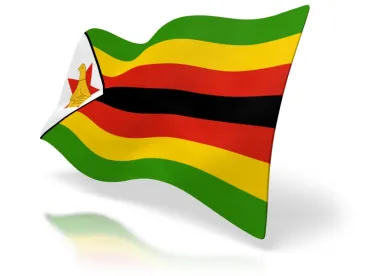Zimbabwe has begun to implement economic reforms that, if continued, could help the struggling nation improve the quality of life for the vast majority of its citizens. The nascent reform movement also suggests that government leaders have realized that reliance on China alone will not solve the country’s economic ills.
The efforts by Finance Minister, Patrick Chinamasa, to restructure the country’s debt with the World Bank, the IMF and other creditors is a recognition by the government that food dependency, low growth and virtually no foreign investment is not sustainable as economic policy. Zimbabwe owes official creditors $10.4 billion with nearly half that amount arrears not paid over 20 years. Between 2011 and 2014 alone, 4,610 companies closed in the manufacturing sector and 55,443 jobs were lost, according to UN and African Development Bank figures.
Zimbabwe’s reform effort began in 2009 when Zimbabwe moved from hyperinflation, which saw poverty rates rise to 72 percent and the sharpest drop in gross domestic product of any economy since the end of World War II, to a dollar based economy. With no options, the country entered into a stabilization program with IMF. At the recent annual World Bank/IMF meetings in Lima, Peru, Finance Minister Patrick Chinamasa presented a plan to restructure the country’s debt and restore relations with Western financial institutions and the African Development Bank. The plan still needs to be fleshed out but, if successful, it would be a first step in creating an environment to attract desperately needed external financing and investment.
Related to the economic reforms is discussion in parliament over legislation that would enable farmers, black and white, to lease land for 99 years and have the capability to transfer land title prior to the end of the lease. For this legislation to have impact, it needs to have the support of the country’s commercial banks. Long-term leases need to serve as collateral so that domestic banks can extend badly needed credit and financing for farmers. It is estimated that $2 billion is required to restore a semblance of productivity in the once-robust agricultural sector.
Transferable long-term leases that can be used as collateral are the only hope for Zimbabwe to recover the viability of its agricultural sector. Long-term leases would also help to restore the rule of law in a sector characterized by arbitrary land seizures and signal foreign investors that commercial contracts may in fact be respected.
Even with progress on debt restructuring and land reform, the country’s indigenization policy, which requires Zimbabweans to own 51 percent of any foreign investment and foreign companies to pay a 10 percent tax on turnover, continues to be a deterrent to revitalizing the economy. No one argues with empowering black Zimbabweans, and local content laws are part of the investment landscape across the continent. The country’s indigenization requirements and their arbitrary application, however, are more onerous than any other country in the region and prevent foreign investment on any significant scale.
Zimbabwe has entered a political and economic transition whose outcome is far from clear. Nevertheless, the reformers have gained a certain momentum with the tacit support of the country’s 91 year old president, Robert Mugabe. The increasingly bitter succession struggle, that pits the president’s wife, Grace Mugabe, against the veteran ZANU-PF leader and vice president, Emmerson Mnangagwa, as well as the former party stalwart, Joyce Mujuru, among others, will impact the pace and direction of the reform process.
Zimbabwe’s former friends should work to encourage these fledgling reforms. Particular attention should be given to engaging Zimbabwe’s battered but determined private sector. After all, the private sector has contributed significantly to political progress across the continent, including in Kenya, South Africa and Nigeria.
The European Union made the right move in 2013 when it lifted most of its sanctions on Zimbabwe, imposed in 2002 in response to electoral fraud and human rights abuses, in an effort to encourage economic and political reform. The EU also extended more than $200 million in financial support. The EU travel ban and asset freeze on President Mugabe and his wife remain in place as does an arms embargo.
The Obama administration should follow the EU lead and sharply reduce its targeted sanctions on Zimbabwe. The U.S. should also work to strengthen the country’s private sector. This could be achieved by working with Congress to allow certain sectors of Zimbabwe’s economy, such as apparel and agricultural producers and women-owned businesses, to participate in the African Growth and Opportunity Act (AGOA).
The recently extended trade legislation allows the president to “withdraw, suspend or limit” the application of benefits to countries who have violated the conditions of the legislation. Zimbabwe does not participate in AGOA but it should have limited access to the program in an effort to support job creation, innovation and, hopefully, economic and political reform. After all, the real drivers of reform in Zimbabwe, as elsewhere, are likely to come from business and the private sector. This is where the U.S. should be placing its support.




 />i
/>i

